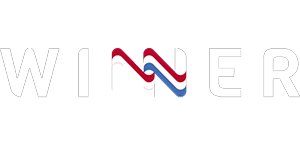Collaborative Dialogue: Navigating Research Policies and Permits in Indonesia
Imagine Indonesia as a ‘living laboratory’, a captivating archipelago comprising thousands of islands, unveils a spectacular space teeming with biodiversity and abundant natural resources. Beyond its reputation as a tropical paradise, this Southeast Asian gem presents a treasure trove of ecological wonders waiting to be explored.
The country’s exceptional geography and wealth of natural resources have not only shaped its ecosystems but also a remarkably diverse culture. Home to over 300 ethnic groups and boasting more than 700 spoken languages, Indonesia is a cultural mosaic. From the lively traditions of Bali to the ancient rituals of the Toraja people in Sulawesi, Indonesia’s cultural tapestry is as diverse and captivating as its natural landscapes.
Yet, like many nations worldwide, Indonesia faces some challenges that demand attention. One of them is environmental challenge. Despite its ecological wealth, the nation grapples with pressing issues such as air pollution, biodiversity loss, and the impacts of climate change. However, these challenges, while substantial, also present an opportunity for global innovation and collaboration to preserve Indonesia’s natural beauty and biodiversity for generations to come.
One pivotal avenue for addressing these challenges is through collaborative research and innovation. Collaboration not only offers solutions but also serves as a platform for knowledge exchange and mutual learning between Indonesian and foreign researchers.
In order to offer comprehensive guidance to Dutch and other foreign researchers in conducting research in Indonesia, the Education and Science Attaché of the Dutch Embassy in Indonesia, in collaboration with the Indonesia-NL Knowledge House and the National Research and Innovation Agency of Indonesia (BRIN), hosted a collaborative dialogue titled “Navigating Research Policies and Permits in Indonesia” on Tuesday, September 19, 2023. This event was designed to equip foreign researchers with vital insights into conducting research in Indonesia.
The event featured two esteemed speakers from BRIN, Mr. Ayom Widipaminto, Director of Repositories, Multimedia, and Scientific Publishing, and Ms. Tri Sundari, Director of Management of Research Permits and Innovation and Scientific Authorities. Ms. Yvonne Klerks, the Education and Science Attaché of the Dutch Embassy in Indonesia, served as the moderator.
During the first half of the event, Mr. Widipaminto elaborated on the regulations governing the deposition of primary research data and research outputs in Indonesia, in accordance with Indonesian Law no. 11/2019, Article 40, which mandates the deposit of primary data and research output. BRIN provides two repository platforms: the publication repository (https://karya.brin.go.id) where publications such as books, research reports, grey literature, and scientific publications such as books, research reports, grey literature, and scientific publications can be stored, and the primary data repository (https://data.brin/go.id), where researchers can store various types of data, including statistical data (SAS, SPSS, Stata, XML, xls, csv, and other relevant formats) and non-statistical data such as textual, digital audio, spatial, 3D, drawings, digital videos, PDFs, and Word documents. BRIN highlights several advantages of using the Indonesian system of repository, including research visibility, enhanced individual reputation, data protection, and improved data retrieval.
In the second half of the event, Ms. Sundari explained the procedures for obtaining ethical clearance and research permits in Indonesia. She emphasized that both foreign researchers and Indonesian researchers affiliated with foreign institutions must apply for these permits and clearances before commencing research in Indonesia. The research permit is also a prerequisite for obtaining a research visa from Indonesian Embassies abroad. Ms. Sundari outlined the straightforward online application process, accessible at klirensetik.brin.go.id. Researchers must first undergo ethical clearance assessments by committees in various fields such as social humanities, animal care and use, health, chemistry, nuclear studies, and others. Upon successful clearance, researchers can proceed to pay the required fees, after which BRIN will issue the research permit.
The event’s moderator and participants enthusiastically posed several questions, covering topics such as the sensitivity of research data, the application process for permits, and opportunities for collaboration with BRIN researchers.
For those who missed the session, the NL Knowledge House has uploaded the recording on its YouTube channel, accessible on this link. To all researchers, we encourage you to take the necessary steps, apply for the required permits, and embark on the exciting journey of conducting research in Indonesia!
Recording Session Notes of Dialogue Leaflet
National Scientific Repository by Mr. Widipaminto
Research Permit in Indonesia Update from BRIN by Ms. Sundari




